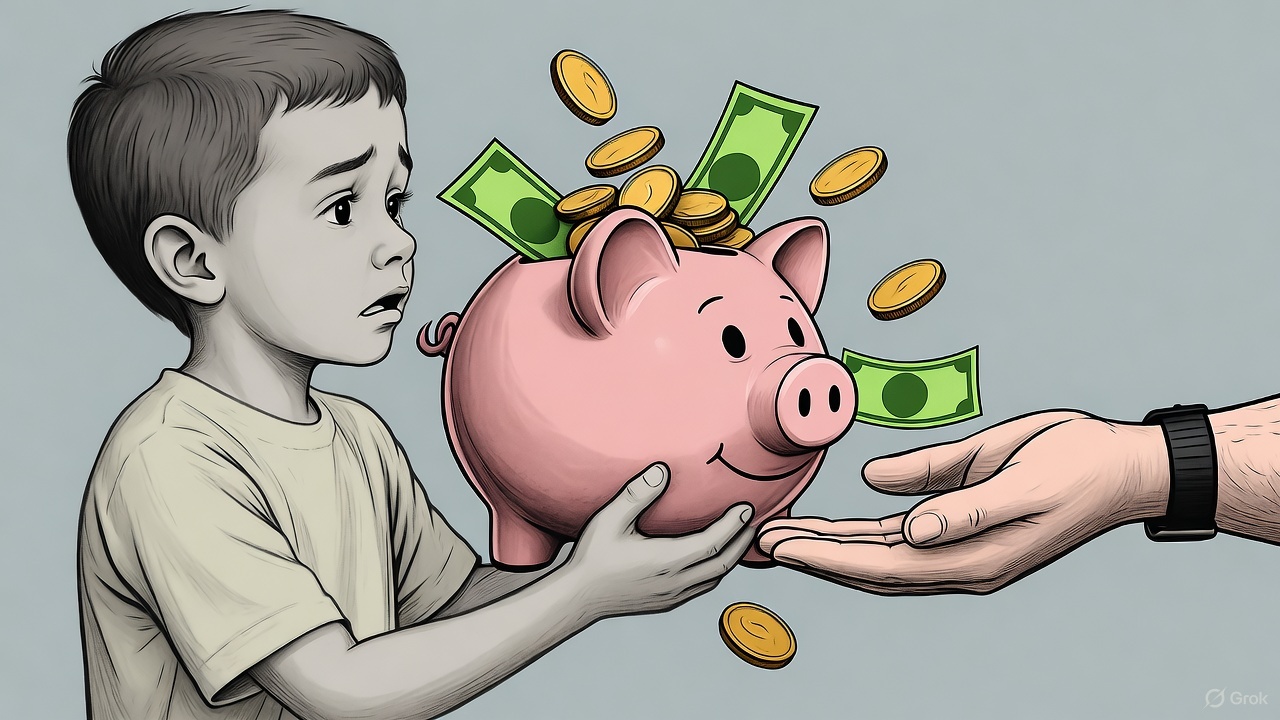If Covid revealed that most Australians were happy to outsource basic health decisions to the state, then compulsory superannuation continues to reveal the same when it comes to their personal finances.
Where once they complied with state orders to lock themselves in their homes because they couldn’t trust themselves to go safely outside, now they lock their own money up for decades because otherwise they’d spend it on holidays and beer.
This is the underlying principle of the compulsory superannuation scheme that then prime minister Paul Keating introduced in 1992: we will give you a tax incentive to deposit your own wages into inaccessible accounts until retirement because, let’s face it, you financial simpletons can’t be trusted to hold onto it yourselves.
The scheme was meant to relieve some of the increasing pressure on the Aged Pension because, as most politicians and bureaucrats were aware at the time, Australia’s birth rate was declining and the population was ageing. Preparations were necessary to make up for the fact that proportionally fewer people would be young and working, and more people would be old and needing help to eat, pay medical bills and buy the occasional schooner at the bowling club.
It never occurred to any of these political boffins to instead introduce tax incentives for working couples to have larger families, but that’s a digression for another day.
The authoritarianism of the super scheme became a hot topic for me on X this week, after two of Keating’s prime ministerial successors, Kevin Rudd and the incumbent Anthony Albanese, nonchalantly struck a deal with Donald Trump to allow $1.44 trillion of Australia’s compulsory retirement savings to be invested in the United States, where industrial activity and productivity are on the rise again. It was proof, I said, that even Labor has now lost faith in Australia to produce anything other than new mosques and Diwali festivals.
It was Labor, under Keating, that forced Australian workers to lock up their own money in the first place. Then Labor was mostly responsible for destroying local investment opportunities. And finally this week two Labor hacks, Rudd and Albo, agreed to let a massive chunk of those compulsory savings stimulate the American economy instead. The chutzpah of it all is absolutely off the charts.
Pointing this out on X triggered more die-hard supporters of compulsory superannuation than I knew existed.
The most fundamental disagreement in the debate involved whose money was being locked away. Superannuation supporters perceive it as an addition to their wages, which, if not for the compulsory nature of super, simply wouldn’t exist. “Super is paid on top of your wage by the company — if there wasn’t super you wouldn’t be getting 12% more in your pocket,” said someone who goes by the name of “Mexiwi”.
This is precisely how the government wants workers to see their superannuation accounts — not as their own money, but as a kind of bonus upon retirement.
Not even Keating was this delusional. He was able to introduce the compulsory scheme because it was the result of a nationwide pay rise he and Bill Kelty negotiated. Nothing came out of workers’ pay packets. But then again, nothing went into them either, and that’s where the sleight of hand began. Super has ever since been seen as a kind of invisible, delayed bonus.
The employers’ perspective is the more realistic one. Super is part of the total cost of an employee. Whether it goes into the worker’s bank account or super fund makes zero difference.
The ambiguity creates a convenient opportunity for dodgy politicians, who can then audaciously suggest our collective super funds could be used to finance ideas that would otherwise be scoffed at by more commercially minded financiers.
And so it has come to pass. Chalmers himself has proposed using super funds to finance the Net Zero transition and other “climate goals”, as well as build “affordable housing”.
The superannuation supporters who engaged with me on X this week revealed more about themselves than they realised. Their devotion to a compulsory system that doesn’t save the nation any money, supports an industry that is so inefficient that even the left-leaning Conversation says it should be scrapped, and prevents them from choosing instead to plough their own money into a house in which to securely and happily raise a family, signifies to me that they distrust their own freedom and decision-making.
Again, this is exactly how politicians want us. The more they infantilise us, the more compliant we become. Next: digital IDs, programmable central bank currencies, Soviet-style censorship and social credit.
A government that can convince you that your money isn’t yours can pretty much get away with anything.


